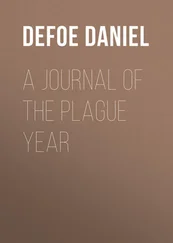The water at the bottom of the blue-glass basin bubbled. She held up her hands, staring at the mouthpiece as if it were the barrel of a pistol. “We’ve got to be careful about infection these days.”
He broke out in laughter. His eyes were red and glassy as he took another puff. “Okay, maybe you are right,” he said. “But look at Mr Izzy—such a careful man. So proper, so clean. He doesn’t want to be around no one. Not even his nice daughter. And he dies. So if I die, I should die with others.”
Tso decided she would get to the point. “You said you could help. By that you mean you can get goods through the barricades?”
“Before I got depressed, I used to sell and re-sell. Long time ago, it used to be bad things. It was bad, not so bad.” He leaned back into the couch. “The kind of things kids get in trouble selling. When this sickness happened, it was like a wake-up call. I need to get back to business. I need to make money. I need to love life.” He pointed his pinched fingertips in the air in emphasis and took another hookah hit to settle himself. “Let us … jump chase. It’s easier to bring things into the city, but I can also take things out.”
“You mean like mail?” Tso asked, knowing immediately she’d missed the mark.
He dipped his nose and looked at her with incredulity. “I am saying I can get you out. Isn’t that what you want? I won’t take money from you, but my associates will charge a fee. It won’t be cheap.”
She shook her head. “No. What I need is a coffin for Mr Grossman.”
He laughed again. “Ah, that is easy. I get you one by tomorrow—the day after, at the latest.”
When the coffin arrived the next day, Khan waved off any attempts to pay him. “Maybe I ask for a favour back,” he told Tso. “Like in The Godfather. ”
Three days had passed, and Tso left Grossman’s house knowing that she had done as much as she could for her friend. At the funeral, so many people came to pay their respects to Izzy Grossman that the small room was quickly filled. Latecomers listened to Janice Grossman’s eulogy, which was funny enough to earn a standing ovation, from the hallway.
Within two months of the quarantine, when weekly deaths peaked at two hundred and twelve, the scarcity of burial space in Vancouver would become an issue that distracted people with righteous anger. The city crematorium operated seven days a week. City land earmarked for a playground was used for those who needed urgent burial for their loved ones, but even then, bodies and remains were stacked on top of one another. If only Grossman knew this at the time, Tso thought. Her father hadn’t really gone too early. He was first in line.
In the first hours of the quarantine, a few Vancouverites managed to sidestep the Canadian Armed Forces roadblocks. Before additional Coast Guard patrol boats arrived, they took their private sea vehicles from the Burrard Marina to Richmond or Deep Cove. Others slipped through the wooded pathways of Central Park, carrying their essential belongings in backpacks and rolling luggage to get to Burnaby and beyond. Siddhu had heard stories of semi-organized gangs of twenty or more darting across Boundary Road in a stampede, knowing that the soldiers couldn’t catch them all. The soldiers had not yet been instructed to use force, the outer limits of which had still not been established, to contain them. In the early days, the spotlights that rimmed the city borders like neon beams had yet to be installed. The barbed wire had yet to be unfurled. The sentry towers would take another week to be built.
The first escapees evaded not only confinement but that sense of unreality that choked so many Vancouverites, that made them long for two-zone bus passes and suburban cul-de-sacs. Envy always overcame locals in between moments of panic and fear.
Siddhu pondered the escapees the way he might look at a friend who bought a stock that skyrocketed. It didn’t help that his wife regaled him with these success stories in their nightly Skype chats. By then, she knew that he had quit his job at the paper. She looked increasingly pale, her eyes puffier, as she spoke from their brightly lit kitchen, the pile of dishes overgrown in the sink. The boys would still be whimpering out their last waking moments from upstairs when she called. He wouldn’t be able to hear them, but she would turn her head and shush them.
Uma needed him to bear witness to her account of the day before she got too tired. People came to help: her mother (whose flight back from Chandigarh had been rerouted to Seattle), his mother, and Uma’s sisters and friends. They watched the boys and brought food, so she could get a massage or sit through a movie. “But then, they always leave,” she said. “Sometimes they go before I want them to, and sometimes they can’t go soon enough.” He knew she was talking about his mother. “What I’m left to do—it’s too much. I don’t blame you. Not when I think about it. But I need to be angry.”
In their relationship, he was the one who cried, the one who needed to be calmed down. Now, he held back his own tears as she worked through her displeasure. Afterward she would apologize through her sobs, and he would tell her to get some sleep. The worst way to end a call was when one of the boys started to scream. He would see her leave the kitchen and stare at the video image of his refrigerator for minutes, unsure of her return, before finally ending their call.
Afterward, he trudged through the snow to take his clothes to the laundromat on Davie Street. He was cycling through four sets of Costco-purchased shirts, pants, and undergarments and was careful not to spill anything on them. Unlike other hotel residents, he neither wore a paper bib nor showed up at the restaurant-lounge in stained T-shirts. When he returned from the laundromat, he would stay in the lounge for a drink with Oishi or Tso, both of whom, he noticed, began to look wan and tired in the Christmas lights. Tso had recently helped a friend deal with her father’s death. Oishi was negotiating the terms of his divorce as he returned to work. Two drinks later, Siddhu would be in his room in his underwear, practicing the yo-yo for a few minutes until he couldn’t keep his eyes open. Then he stretched out on the bed like a snoring starfish.
He had never lived alone, never gone an entire week without seeing his parents or spent more than a couple of nights away from his wife. This should have felt novel. Instead, the absence of these oppressive forces weighed on him. He should have felt lightened. He felt cheated.
A week earlier, a team of paramedics had rushed into his hotel room, led by a night clerk. One paramedic began to pull him out of bed. He screamed until they realized their mistake—they’d been meant to remove an infected hotel guest from the floor above. Ever since, he could not sleep for more than two hours before getting up and vigorously washing his hands.
He often arrived at the GSSP office wishing he could go to sleep, but then his brain perked up at the urgency of the stories he needed to tell. Horne-Bough offered no direction. He was busy speaking to international news outlets about the disease or was in conversation with his lizard-like tech guys. Why was he so obsessed with being surveilled? Horne-Bough seemed happy with Siddhu’s coverage—and his discretion—and even presented him with a gift: a life-insurance policy should he contract the infection while working. Siddhu had been looking online for coverage the previous week and felt buoyed by the synchronicity.
There were so many stories to tell: Siddhu could write about the disparity of infection rates between income groups that had flattened as the disease spread throughout the city but had since re-emerged. He could unpack the disagreements between provincial and federal agencies that led to delays in relief payments for locals whose incomes were decimated either by illness or quarantine. He tried to touch on these issues. And then there was the silence in City Hall surrounding the Mayor’s leave after his personal scandal and his subsequent refusal to resign. He avoided that one, and thankfully a colleague continued to poke at city officials.
Читать дальше












